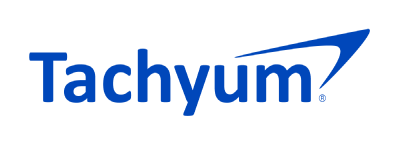Media-Center / Pressemitteilungen / 2024 /
Tachyum Demonstrates PMU Running on Prodigy FPGA Emulation System
· 3 Minuten Lesedauer

LAS VEGAS, February 20, 2024 – Tachyum® today announced that it has added a Performance Monitoring Unit (PMU) to its Prodigy® FPGA emulation system, empowering customers and partners with the ability to address bottlenecks and better optimize Prodigy performance for all applications and workloads.
The PMU is an essential tool for collecting information about performance bottlenecks. It offers the ability to record a wide range of events that encompass every aspect of the Prodigy Universal Processor without slowing down the application itself. Tools like perf then present this information after the application is finished, enabling the identification and characterization of performance bottlenecks that may exist in the processor core, full mesh interconnect fabric, memory, and I/O subsystems. Perf is a go-to instrument for everybody working on performance assessment and tuning under Linux. The PMU’s wide range of performance counters – supported by both software C-model and FPGA – facilitates both system debugging and performance tuning.
Tachyum’s PMU enables faster time to market by allowing customers and partners to quickly identify performance issues and rapidly converge to a solution for all phases of go-to-market, including evaluation, development and final production testing. It provides an invaluable tool suite for customers spanning a broad array of markets, including AI, HPC and cloud computing.
“As the Prodigy Universal Processor continues towards successful product release, it is important that we focus on performance measurement and optimization metrics to ensure it is fully tuned before going into initial production later this year,” said Dr. Radoslav Danilak, founder and CEO of Tachyum. “In a production system, dozens of counters will be available to customer performance teams enabling them to achieve maximum efficiency with their applications running at scale within Prodigy equipped data centers.”
As a Universal Processor offering industry-leading performance for all workloads, Prodigy-powered data center servers can seamlessly and dynamically switch between computational domains (such as AI/ML, HPC, and cloud) with a single homogeneous architecture. By eliminating the need for expensive dedicated AI hardware and dramatically increasing server utilization, Prodigy reduces CAPEX and OPEX significantly while delivering unprecedented data center performance, power, and economics. Prodigy integrates 192 high-performance custom-designed 64-bit compute cores, to deliver up to 4.5x the performance of the highest-performing x86 processors for cloud workloads, up to 3x that of the highest performing GPU for HPC, and 6x for AI applications.
In the next few weeks, Tachyum’s engineers will focus on bringing error detection and correction capabilities to the Prodigy FPGA to enable server-class RAS (reliability, availability and serviceability) features that exceed other server processors.
A video demonstrating a small subset of the total Prodigy performance counters on Prodigy FPGA is available below.
Follow Tachyum
https://www.linkedin.com/company/tachyum
https://www.facebook.com/Tachyum/
About Tachyum
Tachyum is transforming the economics of AI, HPC, public and private cloud workloads with Prodigy, the world’s first Universal Processor. Prodigy unifies the functionality of a CPU, a GPU, and a TPU in a single processor to deliver industry-leading performance, cost and power efficiency for both specialty and general-purpose computing. As global data center emissions continue to contribute to a changing climate, with projections of their consuming 10 percent of the world’s electricity by 2030, the ultra-low power Prodigy is positioned to help balance the world’s appetite for computing at a lower environmental cost. Tachyum recently received a major purchase order from a US company to build a large-scale system that can deliver more than 50 exaflops performance, which will exponentially exceed the computational capabilities of the fastest inference or generative AI supercomputers available anywhere in the world today. When complete in 2025, the Prodigy-powered system will deliver a 25x multiplier vs. the world’s fastest conventional supercomputer – built just this year – and will achieve AI capabilities 25,000x larger than models for ChatGPT4. Tachyum has offices in the United States and Slovakia. For more information, visit https://www.tachyum.com/.

